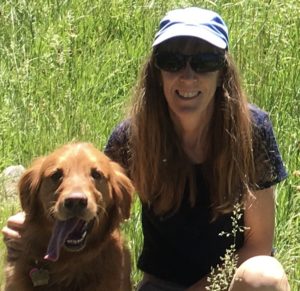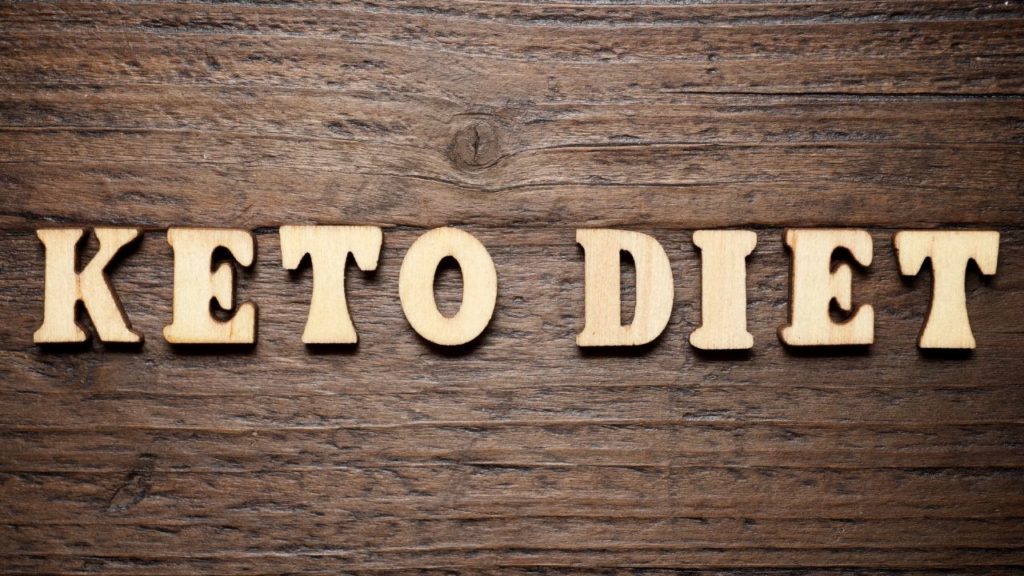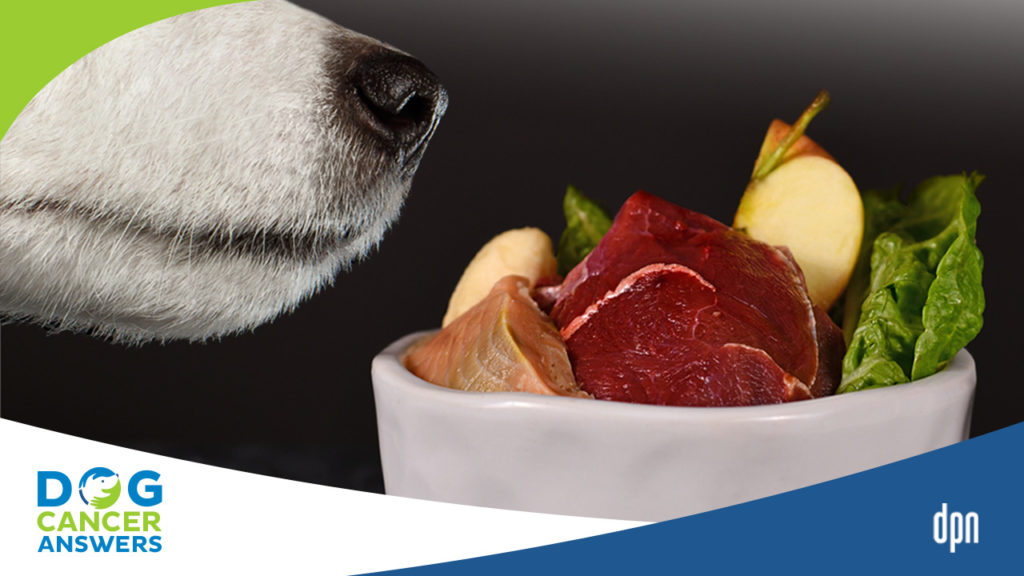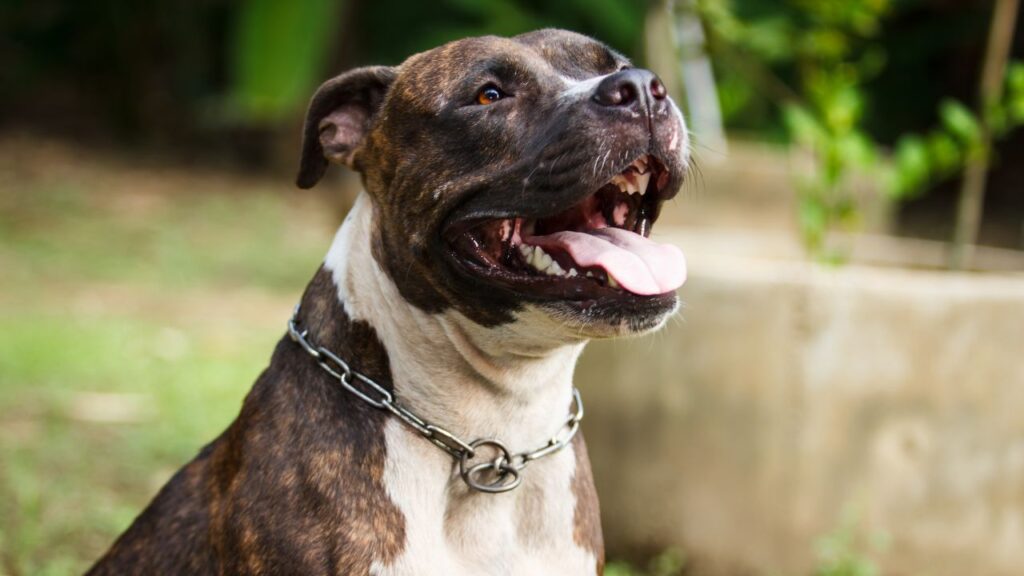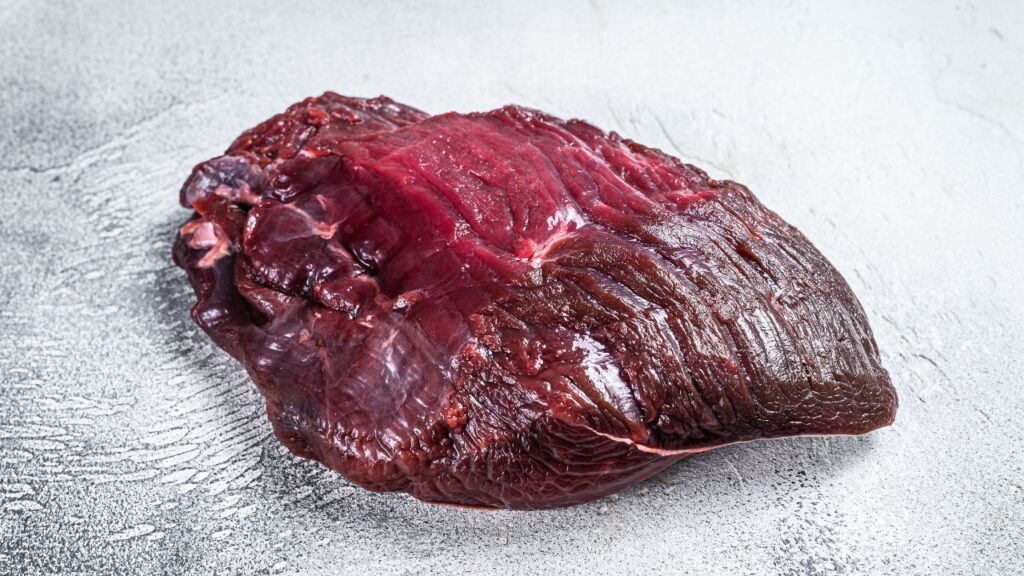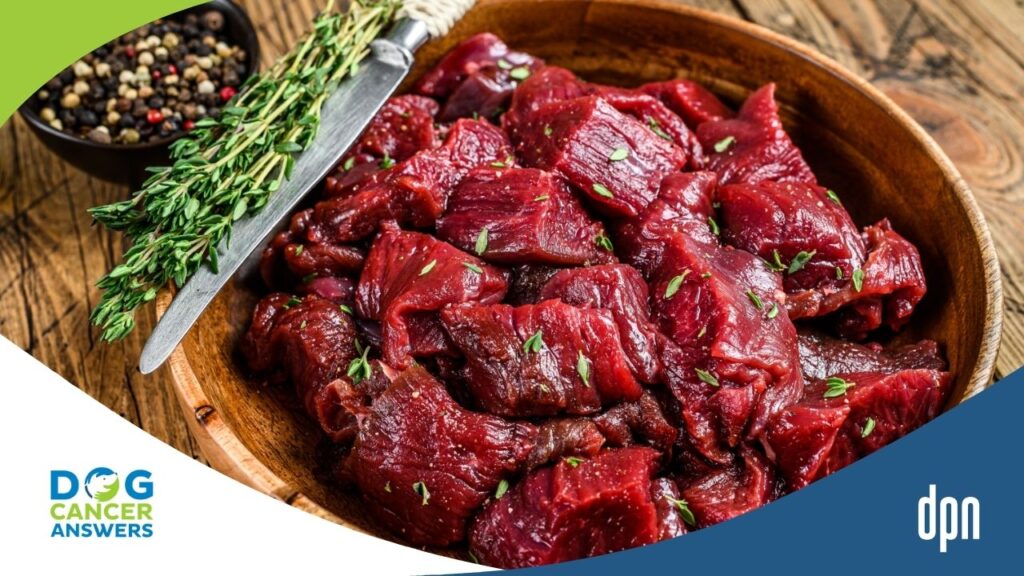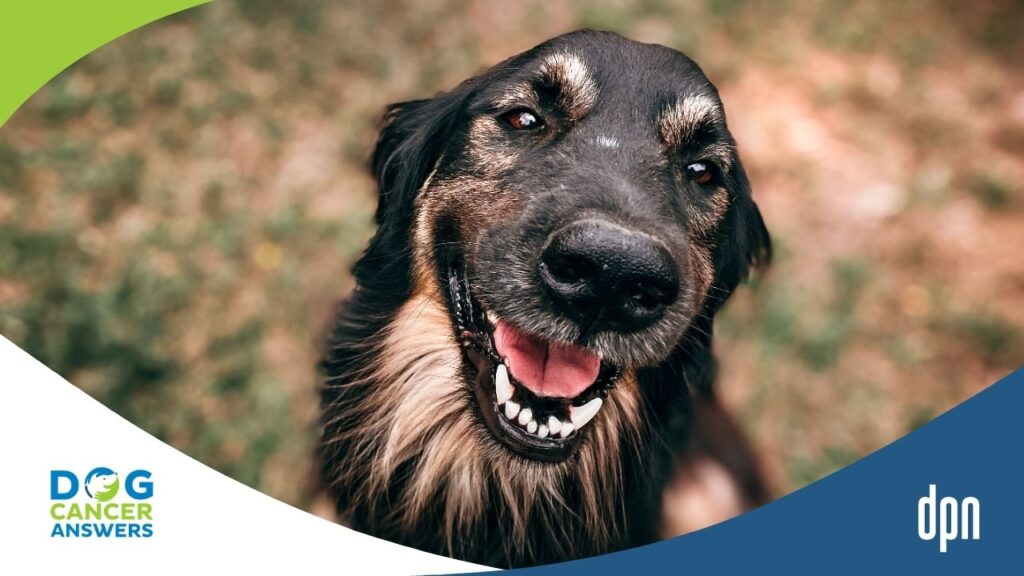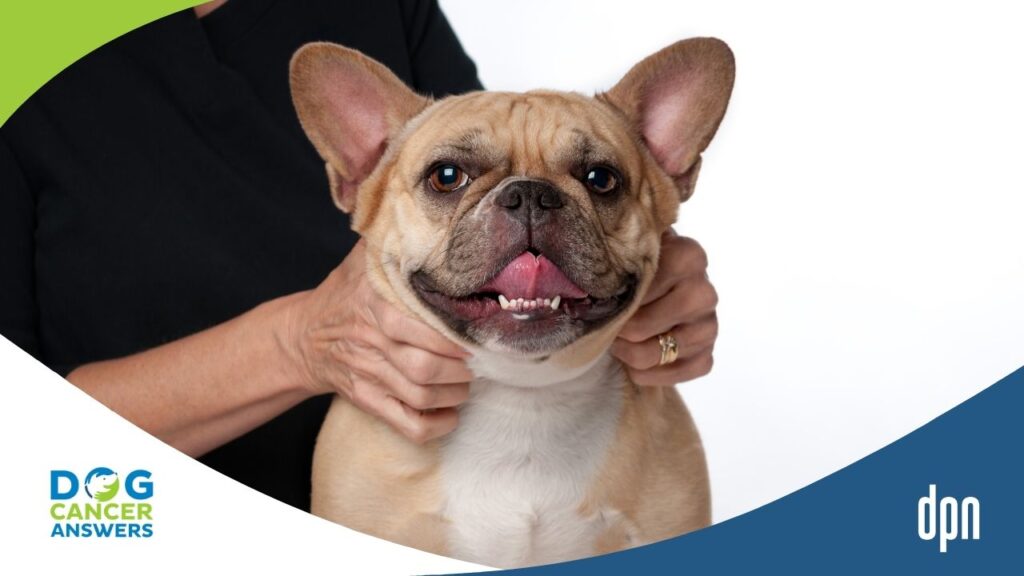>> Dr. Nancy Reese: [00:00:00] You can adapt it a little bit by using something like low fat cottage cheese instead of the full fat cottage cheese. And you can trim all the fat off of the meats so that you aren’t adding a bunch of extra fat.
>> Announcer: [00:00:17] Welcome to Dog Cancer Answers, where we help you help your dog with cancer. Here’s your host, James Jacobson.
>> James Jacobson: [00:00:25] Hello friend. Today, we’re taking a listener’s question about how to balance a diagnosis of pancreatitis with a cancer diagnosis. Susan called our listener line, which is 808-868-3200, to ask what to feed her dog. It gets complicated when you have more than one diagnosis. We are here with Dr. Nancy Reese to find out what she recommends. Dr. Nancy, thanks for being with us today.
>> Dr. Nancy Reese: [00:00:54] Thank you for having me again.
>> James Jacobson: [00:00:56] Here is a question from one of our listeners.
>> Susan: [00:01:00] Hi, my name is Susan. I’m from Las Vegas, Nevada. I have a 12 year old dog who has adrenal cancer along with pancreatitis. The cancer came back after three years, in which case he had a laparoscopy just a few months ago. Cancer came back again. So basically the cancer, the first time he was good for three years, after that he had cancer come back. He had laparoscopy, and now the cancer is back again. He is on Palladia, and I’m not quite sure how to go about feeding him since he does have pancreatitis and adrenal cancer.
I know he needs to get some fat into him, but all I’ve been doing right now is giving him some small amounts of fish oil. Any recommendations would be great to try and help me save my boy. Thank you so much.
>> James Jacobson: [00:01:53] What do you think Dr. Nancy?
>> Dr. Nancy Reese: [00:01:55] So, I think in this particular case, the pancreatitis somewhat trumps the cancer diet because pancreatitis is associated with being pretty miserable and vomiting and really a lot of discomfort.
And we know that fat, in some animals, seems to be a major trigger of pancreatitis. So the classic thing is a dog that gets into some bacon grease and then starts getting very, very sick from it. So the diets that are high in fat seem to predispose animals to pancreatitis a little bit more. And like I said, nobody wants to be vomiting when you’ve got cancer on top of everything else. So avoiding major fats is a good recommendation, but something, I think she had mentioned that she was following The Dog Cancer Survival Guide diet, but in there things like you can adapt it a little bit by using something like low-fat cottage cheese instead of the full fat cottage cheese.
And you can trim all the fat off of the meats so that you aren’t adding a bunch of extra fat. And I think that recipe calls for some liver, and liver tends to be high in fat, so that might be something to cut out or minimize the type of fat. Now, that being said, the types of fats that she is feeding is actually beneficial for pancreatitis.
So things like fish oils that are high in omega-3 fatty acids, those types of things can actually help cases of pancreatitis. For some reason, that fat is different than other types of fat. So adding extra amounts of the fish oil would be a way to get quote, more fat. But it’s also a beneficial fat, and that is even used in the treatment for some dogs that have super high cholesterol and triglycerides, which is a type of blood fat, high doses of fatty acids are actually used to treat that.
So pancreatitis is generally a low fat recommendation, but fish oil is beneficial. So I would tend to get most of the fat from the diet, from fish oils instead of from other animal types of fat.
>> James Jacobson: [00:03:55] Dr. Nancy. Thank you so much. I appreciate it. Hopefully, that was helpful. And thanks for being with us today.
>> Dr. Nancy Reese: [00:04:01] Alright, thanks again.
>> James Jacobson: [00:04:04] So, Susan, our caller, it sounds like you’re on the right track. You minimize fat from protein and limit or eliminate liver in the dog cancer diet, and then use fish oil as your main fat. Now, you’re a veterinarian or a good nutritionist will be able to help you further fine tune your choices based on the specifics of your dog’s health condition.
Those touchstones remind me to tell you again, that if you have a question for one of our veterinarians, you can call our Listener Line at (808) 868-3200 and leave a recording. We’ll have your questions answered on a future episode of Dog Cancer Answers. Right now, we’re going to take a quick break, but, when we come back, I will tell you how to get even more support for your specific dog cancer concerns. Be right back.
And we are back. So, if you have questions about your dog’s diet or how to talk to your veterinarian about diet or anything else, we have an excellent resource for you, and it is entirely complimentary. It’s free. It is our private support group called Dog Cancer Support. It’s a private group on Facebook where readers of Dr. Dressler’s book get together and share recipes and tips and ideas, and they have support for one another. It’s truly amazing. Here’s a good example of how helpful this group is for folks like us who are dealing with dog cancer. Just a couple of days ago, a new member posted about how confused she was about the diet.
She always had her dog on kibble, and is used to just feeding according to the instructions on the bag. But now that she’s cooking Dr. Dressler’s delicious dog cancer diet, she’s wondering how much food her dog needs. Within just a couple of minutes of posting six folks had already weighed in with specific, helpful advice.
And it wasn’t just advice about what to do, but also about how to think about her question. She ended up understanding her own dog and her dog cancer diagnosis better. She went from confused and disoriented to really understanding and organized, but just in a matter of minutes, all thanks to the support from Dog Cancer Support.
So, it is my highest recommendation to you. If you have a dog with cancer, join our private Facebook group. Again, it is free. It is filled with the most compassionate, supportive, loving people that you’ll find anywhere on the internet. You can use the link in the show notes or join by just going to this website, DogCancerSupport.com, it’ll redirect to the Facebook area. You can also of course, do a search on Facebook for Dog Cancer Support. Well, that is it for today’s show, friend. Thank you again to Dr. Nancy and to Susan for calling our Listener Line. Again, that number is (808) 868-3200. That number is also in the show notes, which you can find in your podcast app or on our website, DogCancerAnswers.com.
You’ll also find our entire back catalog at that website, DogCancerAnswers.com. Hey, will you do me a favor, and a favor to future dog lovers who are dealing with cancer? Please rate and review this show in your podcast app or in Spotify or in Apple Podcasts or anywhere that you rate podcasts. It can make a difference.
And when you do that, you will help other dog lovers find us when they need us most. Also, please keep in mind that cancer is the number one killer of dogs. So, if you found this show helpful, please tell your dog loving friends about it. With one in two dogs over the age of 10, getting cancer, every dog lover should know that we are here for them when they need it.
Also tell your veterinarian or even better yet, their staff, about Dog Cancer Answers. We’re always hearing that veterinarians use this show to keep up to date on the latest in dog cancer and the more people who listen the better off all dogs everywhere will be. Cancer’s tough and it’s a nasty foe, but there are lots of things that you can do to treat it.
And that is our goal. To help dog lovers as much as possible. And we thank you for doing your part. I’ll see you next time. And from all of us here at Dog Podcast Network, I’m James Jacobson wishing you and your dog, a very warm Aloha.
>> Announcer: [00:09:00] Thank you for listening to Dog Cancer Answers. If you’d like to connect, please visit our website at DogCancerAnswers.com or call our Listener Line at (808) 868-3200. And here’s a friendly reminder that you probably already know: this podcast is provided for informational and educational purposes only.
It’s not meant to take the place of the advice you receive from your dog’s veterinarian. Only veterinarians who examine your dog can give you veterinary advice or diagnose your dog’s medical condition. Your reliance on the information you hear on this podcast is solely at your own risk. If your dog has a specific health problem, contact your veterinarian.
Also, please keep in mind that veterinary information can change rapidly. Therefore, some information may be out of date. Dog Cancer Answers is a presentation of Maui Media in association with Dog Podcast Network.
